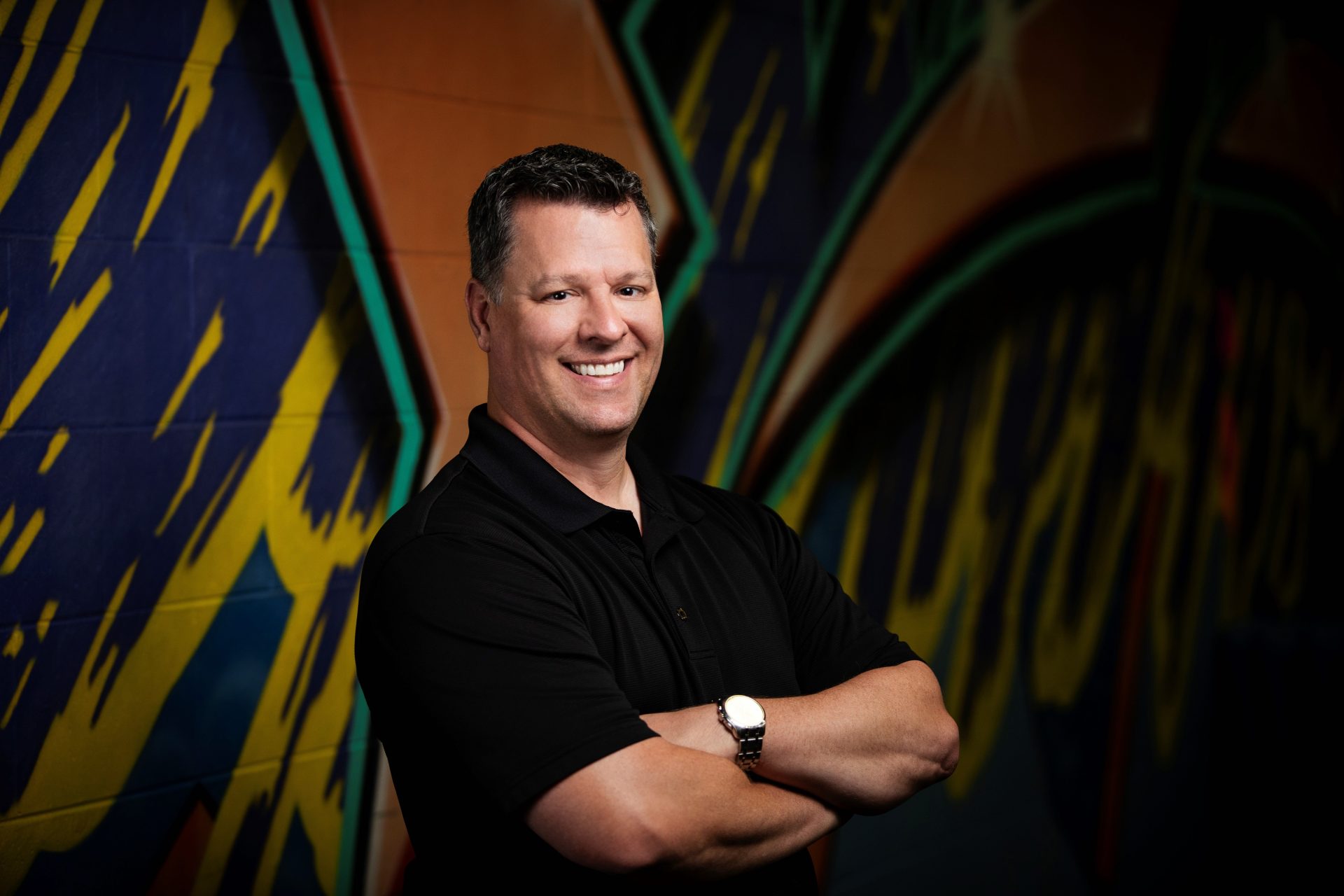When Dr. Ryan Cotton decided to attend an open house for the Krannert School of Physical Therapy at the University of Indianapolis, he had no intention of pursuing another degree, only to see what, if any courses, he could take here and there to better his physical therapy practice. But soon, he found himself on a path to his doctor of health science degree.
“I didn’t have any visions of showing up and then completing a degree five or six years later,” said Dr. Cotton. “It was just an urge to gain knowledge in what I was doing and to be better at what I was doing. I started taking some of the classes because I wanted to learn the content, and as I started that I said, ‘I’m earning credits towards this degree so I might as well complete this degree.’”
What really sold Dr. Cotton on joining UIndy’s DHSc program was the fact that it would allow him to tailor his education to his passion. While his master’s of physical therapy program gave him a solid foundation of physical therapy as a whole, it hadn’t allowed him to focus on the one area he wanted to explore most: orthopedics.
“When I graduated from my master’s program, I was maybe a jack of all trades but master of none,” explained Dr. Cotton. “So going back to UIndy to do doctorate work let me really focus very specifically on orthopedic physical therapy and the clinical delivery of orthopedic physical therapy. One of the reasons I chose a doctor of Health Sciences is because it’s an application degree. You take what you learned in class the day before and apply that information you gain immediately to help you treat patients better.”
Dr. Cotton pursued his DHSc with the intention of becoming a University-level instructor himself one day. During his studies at UIndy, he served as a graduate assistant in the physical therapy program, which allowed him to learn more about what life as a professor would look like.
“Beth Domholdt, the dean of the School of Physical Therapy at the time, was influential on bringing me into the program and in setting me up as a grad assistant,” said Dr. Cotton. “Being a GA really allowed me to be in front of a classroom and to work alongside professional educators. Brian Pease and Sam Kegerreis were also great examples of how to be a caring instructor, a top-notch clinician, and a good professional as well.”
Upon graduation, a world of opportunities opened up for Dr. Cotton. He joined his colleague’s private practice, where together they established the first orthopedic residency program in the state of Indiana. This program allowed Dr. Cotton and his colleague to combine their passion for practicing physical therapy with their dream of educating young clinicians.
Additionally, Dr. Cotton’s DHSc and clinical experience earned him an invitation to join the first board of directors for Rock Steady Boxing, a one-of-a-kind, Indianapolis-based nonprofit gym that provides a uniquely effective form of physical exercise to people who are living with Parkinson’s.
“A friend of mine who was on the board came to me and said they needed someone with the doctorate degree and a therapy background that can really look at the literature that’s out there and help guide what they were doing in these Rock Steady classes,” said Dr. Cotton. “So because I was both a therapist and a doctor of health science, I was invited to serve as one of the medical voices on the board.”
Dr. Cotton would serve on the board for 10 years, until 2019, and in that time, Rock Steady Boxing went from one gym working out of an aerobics studio to more than 800 gyms around the globe. Now, Dr. Cotton leads Rock Steady Boxing as its President and CEO.
Dr. Cotton’s experience at UIndy continues to influence his work with Rock Steady Boxing, specifically through a study that Dr. Stephanie Miller, chair of Krannert School of Physical Therapy and program director of the Doctor of Physical Therapy Program, has been conducting with Rock Steady for the past two years.
“My time at UIndy set up relationships that I still have today with Dr. Miller and Connie Fiems, who’s our chief scientific officer currently,” said Dr. Cotton. “Thanks to the relationships I made then, there is still an active partnership between Rock Steady and the UIndy community.”
The study led by Dr. Miller, “A Longitudinal Analysis of Impairment, Activities and Participation in Persons with Parkinson’s Disease,” followed 88 people with Parkinson’s and studied their exercise habits and how that affects their symptoms. The results of the study will be published later this year, but in her video presentation, Dr. Miller explains that the Rock Steady method actually improves patients’ symptoms, with noticeable improvements in patients’ gait-function and endurance.
“My focus now is to position Rock Steady Boxing as a collaborator and a leader in the exercise for Parkinson’s world,” said Dr. Cotton. “With the help of like-minded colleagues, we’ll continue to advocate for exercise for Parkinson’s as an essential component of the treatment of Parkinson’s disease. as essential as your medication and your physician, and to continue to position exercise for Parkinson’s as an essential function that patients need to be participating in to manage and slow the progression of the disease.
“My ultimate goal is to be an unemployed job searcher because somehow the research community has come up with a treatment that stops the progression of Parkinson disease, but until that happens, we’re going to keep trying to position exercise as an essential intervention for those with Parkinson disease.”
You can learn more about Rock Steady Boxing and its incredible impact on patients with Parkinson’s disease at https://www.rocksteadyboxing.org/.

